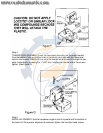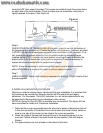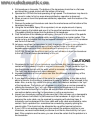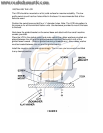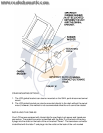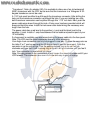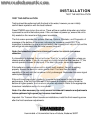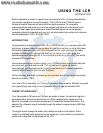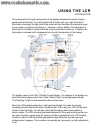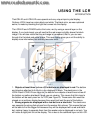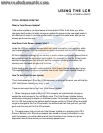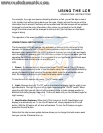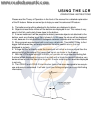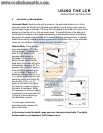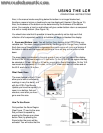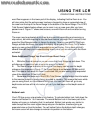
USING THE LCR
INTRODUCTION
The reading at the far right hand position of the display illustrates that which is being
passed over at that time. If you are familiar with a flasher unit, you might think of the
information coming on the right side of the screen as the information that would be seen
at one instant on a flasher (see Figure 1). However, unlike a flasher, this information is
not lost but it is shifted or moved to the left as new information comes on. Therefore, the
information is retained until it disappears from the left hand position of the display.
The display used on the LCR is a Liquid Crystal Display. The material in the display is a
liquid that can be aligned such that it either "blocks" light or it lets light pass through.
This “blocking” of light is what makes the dots on the screen.
Since the LCR’s display depends on light passing through it to make the images,
increasing the light source will make it easier to see. This is why your LCR can be seen
so well in direct sunlight. You will also notice that the display can be seen better at
certain angles. The LCR mounting has been designed for tilting and pivoting so that you
can easily maintain a good angle for viewing. Another characteristic of an LCR display
is that you may find that some polarized glasses might affect the view by causing a
rainbow prism to appear. This condition can possibly be improved by a slight adjustment
in tint.



